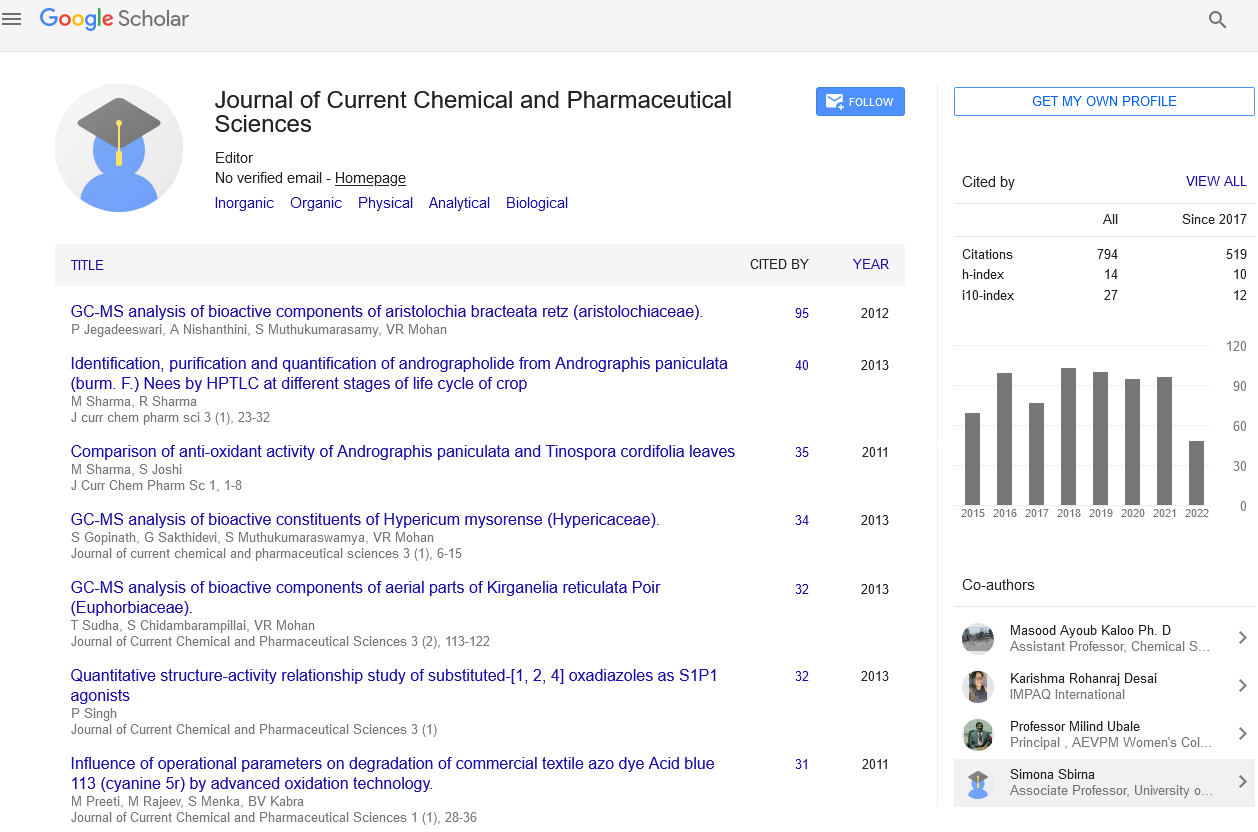Abstract
Effect of Salinity on Sodium & Potassium Uptake and Proline, Carbohydrates Contents of Turmeric Plant Parts
Author(s): Akbar Mostajeran and Alieh GholaminejadTurmeric (Curcuma longa L.) is a rhizome-bearing perennial plant of the Zingiberacea family, which is native to Southeast Asia. Traditionally, turmeric has been used as a kind of spice, medicine, cosmetics, colorific matter and flavoring in food industries. Soil and water salinity is one of the main stresses that can drastically reduce the rate of plant production. Wide spread of saline soil in Iran and lack of information concerning this plant due to non-cultivation of Turmeric in Iran are reason for conducting this experiment. Therefore, the effect of saline water on the rate of sodium, potassium uptake by Turmeric and also proline and carbohydrates accumulation were evaluated at two times. So, rhizomes were grown in coco peat and perlite in controlled conditions. A month after germination, plants were irrigated with Hoagland’s solution containing 0, 20, 60 and 100 mM, NaCl as treatment. One and two months after saline condition, the plants were harvested and sodium, potassium, praline and carbohydrate were measured in turmeric’s plant parts. Experiment was conducted in a split plot design using completely randomized experiment with 6 replicates. According to the results, increase in salinity caused addition of sodium but less potassium in all plant parts at two different harvest times. Moreover, the amount of proline and the soluble and reduced carbohydrates were related to the interaction of salinity levels and exposed time to salinity. When the amount of Na+ content was less than 1.74% DW, the amount of proline, carbohydrates and reduced surges increase as salinity was increased. However, when salinity exceeded in plant, then the amount of carbohydrates and reduced sugar declined as salinity increases.
